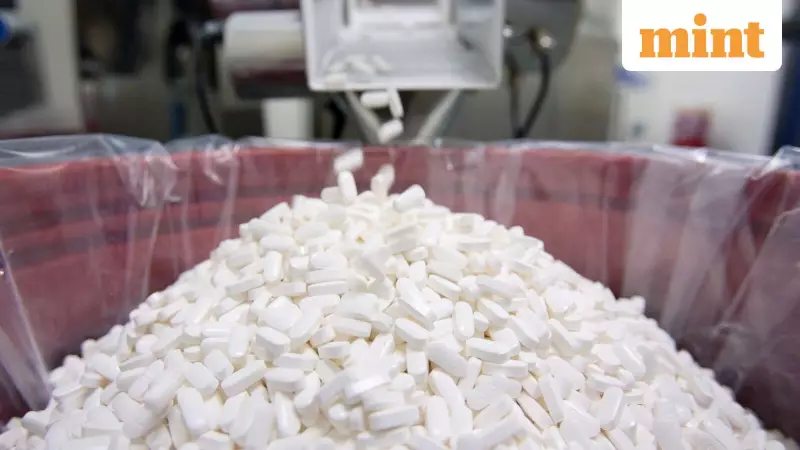
India's apex drug regulator has issued a final ultimatum to pharmaceutical companies across the country, warning that manufacturing units failing to comply with updated Good Manufacturing Practices (GMP) by December 31, 2025, will face immediate closure. The directive comes as part of a nationwide crackdown to align India's pharmaceutical standards with global benchmarks.
State-Level Enforcement Intensifies
Multiple states have already begun taking stringent action against non-compliant pharmaceutical units. According to officials familiar with the matter, Delhi, Himachal Pradesh, and Uttarakhand have initiated inspections and issued warning notices to manufacturers who have not upgraded their facilities to meet the revised Schedule M requirements.
Dr. K.R. Chawala, Delhi's drug regulator, confirmed the development, stating: "Following directives from the DCGI, we have already initiated inspections of companies in Delhi. Firms that are not GMP-compliant have been issued a warning closure notice, requiring them to upgrade their facilities by 31 December 2025."
Focus on MSME Sector and Compliance Challenges
The regulatory scrutiny is particularly intense on Micro, Small, and Medium Enterprises (MSMEs), which constitute approximately 80% of India's over 10,000 pharmaceutical manufacturers. These smaller units were granted an extension until December 2025 to comply with the updated norms, provided they submitted upgrade plans.
Dr. Manish Kapoor, State Drugs Controller for Himachal Pradesh, explained their approach: "We have been proactive in ensuring that all drug manufacturing units in Himachal Pradesh strictly adhere to the provisions of the Drugs and Cosmetics Act and Rules. Independent audits have already been initiated, and the DCGI office has been duly informed about our action plan."
Himachal Pradesh, which hosts around 664 drug manufacturing units, is conducting comprehensive inspections of each facility. Dr. Kapoor emphasized that the verification process for firms that didn't apply for extension has commenced and will continue over the next 2-3 months.
Nationwide Inspection Drive Underway
Other states have also joined the compliance enforcement drive. Tabjer Singh, Uttarakhand's state drugs regulator, reported that joint inspections have been conducted at 152 units, with 40 firms receiving 'stop production' notices until they significantly upgrade their manufacturing facilities.
"We are being very active on this initiative," Singh stated. "We have also explicitly warned these companies that their licenses will be cancelled if they continue to be non-compliant with Good Manufacturing Practices." Uttarakhand has approximately 260 drug manufacturing plants.
Rajasthan has similarly intensified its regulatory efforts. Ajay Patak, the state's drugs regulator, confirmed: "We have 65 pharmaceutical units in our jurisdiction, and we are actively inspecting every single one to ensure they comply with the revised Schedule M Good Manufacturing Practices. Notices are being issued to those firms not adhering to these new mandatory rules."
Global Standards and Quality Imperatives
The regulatory push follows the health ministry's December 2023 decision to upgrade standards, aligning India's pharmaceutical regulatory framework with World Health Organization (WHO) GMP benchmarks. This move gained urgency after Indian-manufactured drugs were linked to child deaths in Gambia and Uzbekistan.
An anonymous official highlighted the critical nature of the compliance drive: "These MSME drug firms are on the radar because recent quality lapses, especially in certain exported products, have often been traced back to smaller units with limited financial resources to invest in costly infrastructure and quality management system upgrades required by the new Schedule M."
The official emphasized that companies must follow GMP without exception, noting that the initiative aims to "ensure quality over volume, to protect both domestic consumers and the industry's global standing."
Industry Impact and Expert Perspectives
India's pharmaceutical industry holds a dominant global position as the world's largest provider of generic medicines by volume, commanding approximately 20% of the total global supply. According to the Department of Pharmaceuticals, the industry is worth an estimated $50 billion and is projected to reach $130 billion by 2030.
Arushi Jain, Director of Akums Drugs and Pharmaceuticals, welcomed the regulatory measures, stating that strengthening GMP adherence across the industry will "enhance patient safety but also reinforce India's reputation as a trusted global hub for high-quality pharmaceuticals."
Dr. Rajeev Jayadevan, a public health expert, provided crucial context: "When a doctor prescribes a medicine, both doctor and patient assume it will be of good quality. But this isn't always true in India, as the same drug is made by several companies with varying standards. Those following GMP are more likely to produce better quality products."
He predicted that mandatory GMP compliance would eventually raise overall quality standards, similar to how NABH accreditation transformed hospital standards in India. "Once GMP becomes unavoidable, patients will start demanding it. In the long run, it will raise the overall quality and global credibility of Indian pharmaceutical products," Dr. Jayadevan concluded.
The December 31 deadline represents a critical milestone for India's pharmaceutical sector, with the DCGI's "strict and final direction" leaving no room for non-compliance as the country works to maintain its position as the pharmacy of the world while ensuring uncompromising drug safety standards.






